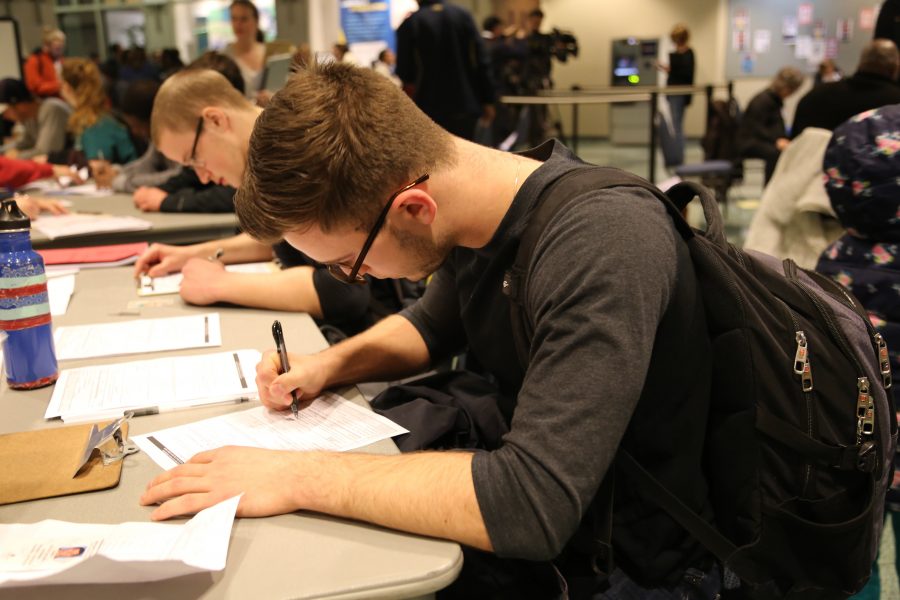By Emily Bieniek
Special to the Tribune
With the 2012 presidential election quickly approaching, both mainstream and lesser-known media outlets have been providing near constant coverage of the candidates and the issues—though a panel of experts hosted by Marquette Monday pointed out how a given source may often leave much to be desired when it comes to political coverage.
CBS News National Correspondent and Marquette alumnus Ben Tracy, visiting instructor and coordinator of student programs for the Les Aspin Center Christopher Murray and Nieman professor of journalism Bonnie Brennen discussed media coverage in modern campaigns and shared their opinions on what they see as the most important aspects of media coverage facing the public today.
Erik Ugland, the associate dean for graduate studies and research and an associate professor of broadcast and electronic communication, moderated the discussion. The panel featured general discussion, and panelists did not endorse either political party or candidate.
The panelists talked mostly about criticisms surrounding the media and politics. Tracy noted the difficulty for news organizations in presenting opinions without being labeled as biased by a political party. He also pointed out that journalists are considered rude for trying to get politicians to answer questions they’re trying to avoid.
Brennen said throughout the 20th century, politicians often sought out reporters, whereas now the media is sometimes feared. Brennen cited President George W. Bush as an example, saying he “saw the media as a special interest group that needed to be managed.”
Brennen also noted that the public has many options to seek out news other than just newspapers and television. Social media is one example of a growing news source, she said.
The panelists also debated the responsibility of the media, the political campaigns and the citizens when it comes to giving and receiving correct information.
Tracy said the responsibility to decipher information belongs mostly to citizens, because politicians have a way of avoiding especially contentious issues.
“They boil complicated issues down to a thirty second sound bite that makes people feel good,” Tracy said.
Tracy pointed out the difficulties for a news organization in portraying a candidate accurately because campaigns often attempt to hide many issues.
“You know a lot about the personalities of these two people and their stories as created by their opposition, but how much do you know about what they’d really do?” Tracy said.
Murray said responsibility for discerning the important facts surrounding a candidate falls mostly on the public. To do this, Murray said a person should consider more than one news source for information.
“Seek media that challenges (you), not what’s going to please you,” Murray said.
More than 60 people came to listen to the panelists speak, including a variety of students and professors. Wade Balkonis, a Les Aspin alumnus and Marquette senior in the College of Arts & Sciences, said he expected more depth from the panel.
“I don’t know how much new information we walked away with from here, but having the commentary from people inside (the media) is really helpful,” Balkonis said.
Victor Jacobo, a junior in the College of Communication, said the panelists made good points and stayed realistic.
“They were very real in what today’s journalistic world is, and I think because of that, students got a great insight into what the job is today,” Jacobo said.


